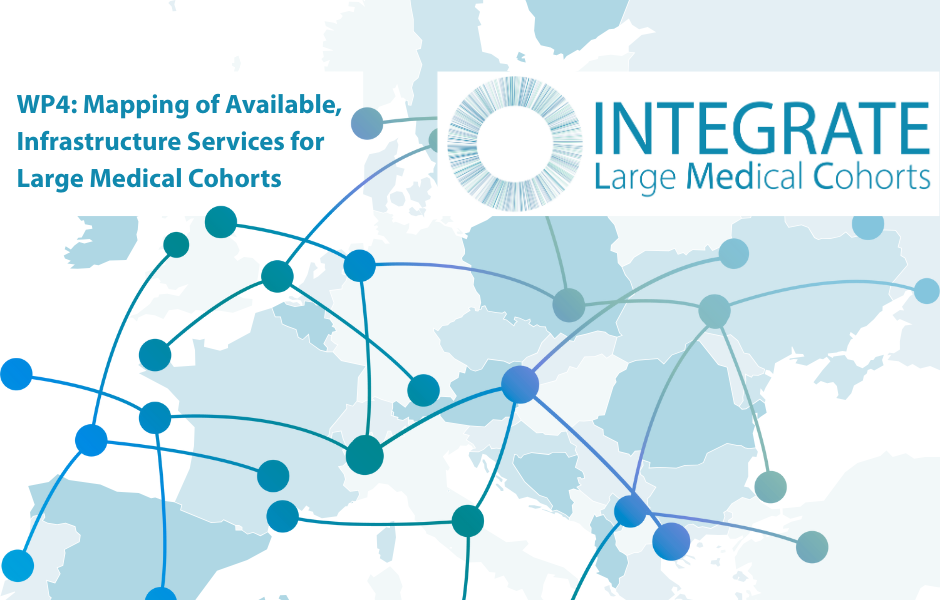Work Package 4 activities started during month 13. WP4 focused on mapping European and selected international research infrastructures that provide services to large medical cohorts. Led by ECRIN, Task 4.1 provided a detailed overview of the services, tools, and capacities offered across the entire research-data lifecycle, from study design and governance to long-term data exploitation. The mapping included among others, ESFRI/ERIC infrastructures (e.g., ECRIN, BBMRI,ELIXIR, EBRAINS, EIRENE), national cohort infrastructures (e.g., France-Cohortes, NFDI4Health), multinational initiatives (e.g., SYNCHROS, ORCHESTRA, Maelstrom Research, IARC/WHO, the International Health Cohorts Consortium – IHCC) and biobanks (e.g., Estonian Biobank, UK Biobank).
Deliverable 4.1, “Mapping of Available, Infrastructure Services for Large Medical Cohorts”, presents the results of a survey and follow-up interviews with 25 organisations, identifying five major service clusters: 1) Data Services, 2) Regulatory and Ethical Support, 3) Methodology and Design, 4) Biobanking and OMICS, and 5) Operational Support and Coordination. The analysis highlighted both strengths and gaps—for instance, while most organisations interviewed provide data-centric services, only a few support cohort registration or day-to-day study conduct.
Some organisations are generalist infrastructures offering broad, multi-cluster support, while others are highly specialised, delivering deep expertise in focused areas such as imaging, OMICS, or ELSI, but not many offer full-service coverage. There is a need to build synergies, harmonise practices and legal requirements within the EEA to allow these infrastructures to scale up and adapt their services for pan-European users.
The partners also highlighted six cross-cutting challenges that impede service provision to large medical cohorts, e.g., chronic, project-based funding that jeopardises long-term cohort maintenance, fragmented and fast-changing regulatory environment (GDPR divergence, uneven EHDS readiness, national differences), technical interoperability gaps across domains and formats, privacy and ethical constraints slowing cross-border data sharing (even with federated models), shortage of data stewards and specialist staff, unequal digital infrastructure, storage and secure-compute capacity.
In parallel, Task 4.2, led by BBMRI-ERIC, captured the perspective of users through interviews with researchers and cohort operators. Its output, Milestone 4.1 was completed in July and highlights the diverse and fragmented use of infrastructure services across Europe, identifying persistent challenges such as regulatory complexity, limited in-house expertise, and financial constraints. Together, Deliverable 4.1 and Milestone 4.1 provide a solid evidence base for the next stage of WP4, which will include a gap analysis comparing existing service offers with user needs, a workshop involving multiple stakeholders planned before the end of November, and a literature review to inform recommendations for strengthening infrastructure support for large medical cohorts.


Leave a Reply